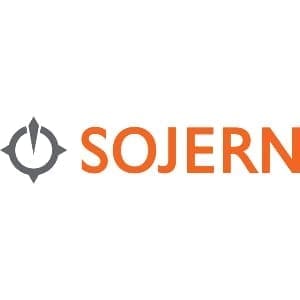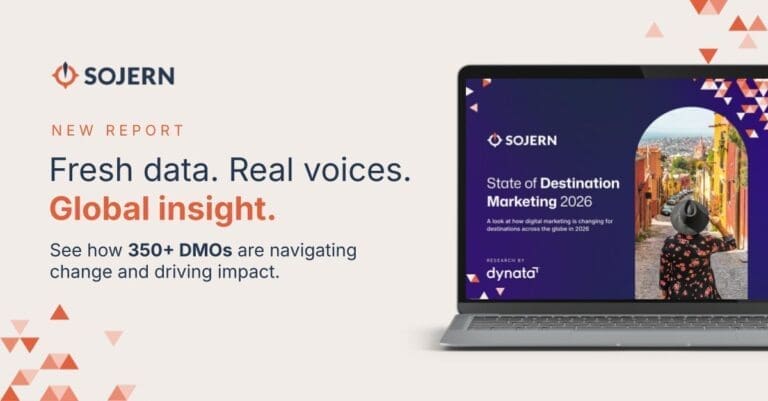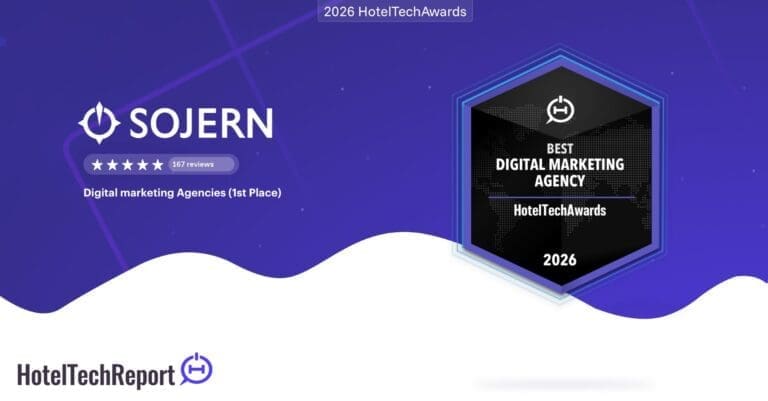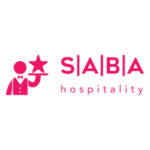Direct bookings are a huge challenge for hotels, particularly for smaller properties that aren’t backed by a corporate marketing machine.
 However, during the time of COVID-19, these bookings are more important than ever, particularly as travel markets begin to recover. Not only do direct bookings ensure higher revenue percentages for properties that desperately need the income, they give hotels greater control over customer relationships – and the entire customer journey. In a post-COVID landscape, travellers want greater flexibility than ever before, including the ability to adjust plans as situations change. By delivering that seamless, flexible experience, hotels can use this opportunity to capture customer loyalty and future bookings.
However, during the time of COVID-19, these bookings are more important than ever, particularly as travel markets begin to recover. Not only do direct bookings ensure higher revenue percentages for properties that desperately need the income, they give hotels greater control over customer relationships – and the entire customer journey. In a post-COVID landscape, travellers want greater flexibility than ever before, including the ability to adjust plans as situations change. By delivering that seamless, flexible experience, hotels can use this opportunity to capture customer loyalty and future bookings.
As we see more European countries open, hoteliers are optimistic about recovery. According to a recent international survey of 500 hoteliers, 42 per cent of respondents believe the travel market will see signs of recovery in four-to-six months. And the data shows potential travellers feel the same. Given that Portugal just reopened its beaches, many Europeans are looking to holiday there as soon as July and August. Bookings are already up for those months and flight searches have increased by 37 percent compared to March and April. In addition, flight searches to Greece are only about 14 percent down from 2019 levels. It’s also worth noting that Italy and Spain, which were impacted first and hardest by COVID-19 in Europe, have seen positive increases in travel searches: Italy is now only down 59 per cent year-over-year, and Spain is down 65 per cent.
As more countries begin to open their borders, some as early as July, prospective travellers will be dreaming, searching, and booking their next trip . Unfortunately, many hotel websites aren’t up to par. As of 2018, hotel website conversion rates are approximately 2.2 percent. Given that 39 per cent of respondents will have a lower marketing than they did pre-COVID, a website is the first place to look for improvements. Right now, the only outlet many hotels have is online, but many properties are missing critical opportunities on their website to woo potential travellers. Think about it this way: Hotels that make a concerted effort to spend time and money on their websites benefit from an increase in direct sales, an enhanced brand image, and as a result, profitability.
Now’s the time to create a website that converts and the path to conversion starts with a simple, readable, branded site. Here’s how to lay the groundwork.
Keep it simple
The most important thing for a hotel website is simplicity. Navigation should be easy, the site should showcase high-quality, well-lit images that highlight various offerings and amenities, and hotels should be straightforward about their new COVID policies. For example, create a COVID-19 page that highlights the hotel’s approach to an effective hygiene and cleaning programme for staff, guestrooms, public, and staff-only areas. Use this space to share how the team is trained to respond swiftly to anyone showing COVID-19 symptoms on site, including the process to notify medical authorities.
For hotel websites, simplicity isn’t just about navigation. It’s important to have seamless mobile and desktop experiences that load quickly. In fact, research indicates 53 percent of people will leave a mobile page if it takes longer than three seconds to load. To keep load times down, stay away from Flash in particular, as it will be retired at the end of 2020. A great first step is using a tool like Google’s ‘Test My Site’ to measure the speed of a mobile site and establish the current load time.
De-fluff the content
Nothing is more frustrating than weeding through endless copy trying to decipher what a hotel is actually saying. While it may be tempting to add any number of superfluous adjectives, clear, succinct, and on-brand content always wins out in the eyes of the consumer. Pick what’s important and don’t sell everything at once. A good rule of thumb is to make a list of everything travellers should know and cut it in half. Use active language, don’t overpromise, and create a strong call-to-action.
No matter what, it’s important to test everything. From “book now” to “learn more,” every single word has the power to persuade – or dissuade – potential travellers. By constantly testing and refreshing content, hotels can determine what works while preventing the website from becoming stale.
Stay on-brand
Part of delivering a consistent customer experience is consistent branding. Branding should be considered in every aspect of a website, including fonts, colours, prominent but not overstated logos, and photo filters. An important, but sometimes overlooked, aspect of branding is reviews. Online travel reviews rank third in consideration among high-value travellers when choosing a travel brand, so be sure to include both the best and most recent reviews. In addition to having a great branded website, remember to brand elsewhere. After all, 68 percent of millennials found inspiration for their next trip on Facebook.
In the era of COVID, every hotel’s brand should be built on transparency and flexibility. A personalised, straightforward path to booking that clearly states new policies and procedures has the power to win customer business like never before. For example, Marriott has extended its customers’ loyalty statuses to Feb 2022, and paused all points expiration to Feb 2021. While boutique hotels or smaller chains may not be able to follow in Marriott’s footsteps, it’s important to look at the booking process from a potential guest’s perspective and take extra steps to enable them to book with confidence.
A website functions as a branding tool and a booking engine all in one place. It’s a hotel’s chance to tell its story and woo potential travellers with great amenities and exceptional service. Now more than ever, direct bookings hold the key to economic rebound. By making the right changes, hotels can increase conversion rates and reap the benefits of direct bookings.
Our newly released Creating a Website That Converts: The Hotelier’s Guide to Direct Bookings report can be downloaded here.
Celine Chaussegros, General Manager, EMEA at Sojern
 Celine Chaussegros is Sojern’s General Manager of EMEA, based in Paris. Previously Celine was Regional Sales Director of EMEA at Sojern. With over 15 years experience in the Online Travel and Hotel Distribution spaces, she has an unmatched history of supporting hoteliers. Her professional history includes business development roles at Hotels.com, Opodo, and most recently, Orbitz, where she led the development of strategic hotel accounts in EMEA.
Celine Chaussegros is Sojern’s General Manager of EMEA, based in Paris. Previously Celine was Regional Sales Director of EMEA at Sojern. With over 15 years experience in the Online Travel and Hotel Distribution spaces, she has an unmatched history of supporting hoteliers. Her professional history includes business development roles at Hotels.com, Opodo, and most recently, Orbitz, where she led the development of strategic hotel accounts in EMEA.


















